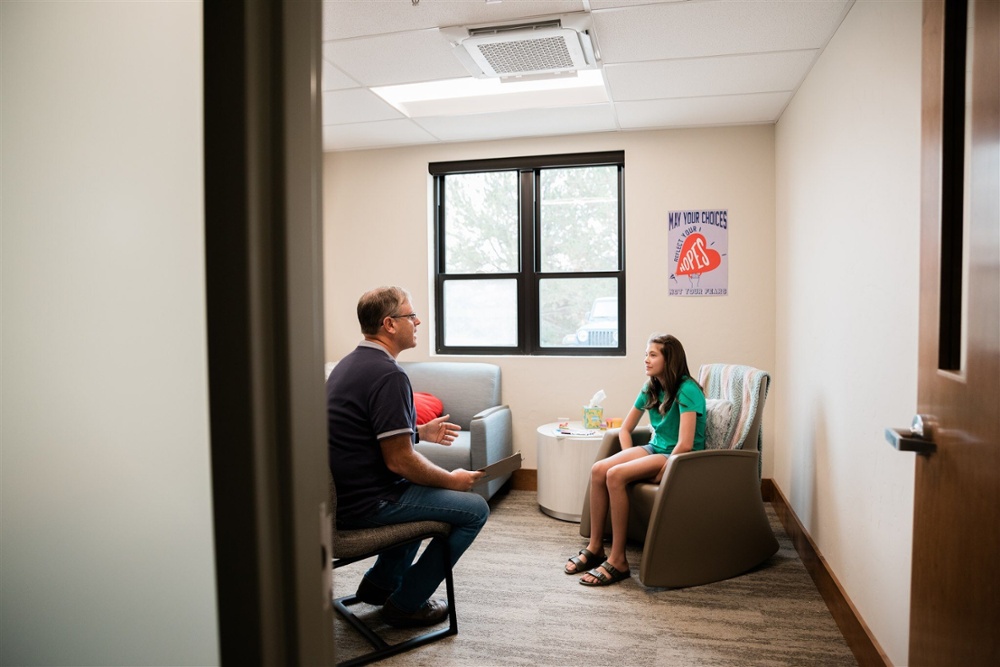Why Specialized Therapists Matter
When pre-teens and adolescents face issues like depression, anxiety, trauma, or other challenges impacting mental health, parents naturally seek counseling support. But treating young clients differs greatly from working with children or adults.

Table Of Content
- The Unique Needs of the Teen Client
- Risks of Non-Specialist Treatment
- Traits of an Effective Adolescent Therapist
- Ideal Therapeutic Approaches for Teens
- How Specialized Care Improves Well-being
Securing properly trained teen-focused therapists makes all the difference in engagement, rapport, clinical effectiveness, and lasting life outcomes.
This article will explore how teen psychology and needs vary, risks of non-specialized care, what expertise ethical youth therapists should have, ideal therapeutic approaches for this group, and how proper treatment aids long-term development.
The Unique Needs of the Teen Client
Brain development research confirms teenagers are neither big children nor small adults—they represent a distinct psychological life stage with specific care requirements.
-
Adolescent brains experience rapid neural development and unique neurochemical changes underpinning emotional, cognitive, and social shifts. Therapy must align with teen brain growth.
-
Teens crave autonomy over being “told what to do.” Collaborative styles resonate better than hierarchical relationships.
-
Peer relationships and forging personal identity take precedence. Social microcosms dominate teen perceptions.
-
Impulsiveness peaks, teens often struggle regulating intense emotions, and risky experimentation abounds
-
Concrete thinking and present-time focus prevail over broader context. Teens want direct help with what’s happening now.
-
Opinions of non-familial adults carry greater weight in shaping self-concept. Therapists powerfully influence teens.
Inexperienced counselors often miss nuances and talk over teens. Tailoring approaches to teen orientations improves cooperation and outcomes.
Risks of Non-Specialist Treatment
Risks of Non-Specialist Treatment
When therapists lack teen-specific skills, negative consequences ensue:
-
Failure to establish rapport and “speak teen” hinders providing proper diagnoses.
-
Applying adult models like cognitive-behavioral therapy mechanically, without adjusting terminology or content, backfires.
-
Overlooking key peer, school, and social dynamics tied to teen struggles limits contextual understanding.
-
Allowing parental controlling of the therapy process undermines teen trust and willingness to disclose.
-
Insensitivity to teen resistance and autonomy needs causes rejection of the therapist’s help.
-
Misreading teen behaviors through adult lenses leads to inappropriate treatments or hospitalizations.
-
Underestimating suicidal thinking, drug use, promiscuity, and other risky behaviors given underdeveloped impulse control and emotion regulation.
Traits of an Effective Adolescent Therapist
So what credentials should families look for? Therapists with the following demonstrate specialized expertise benefitting teen clients:
-
Advanced degree and licensure/registration in social work, counseling, or psychology
-
Experienced therapist who specializes in treating adolescents. Those who work with adolescents every day are more likely to develop behaviors and approaches that connect with teens.
-
Additional certification/training in child and adolescent development and clinical interventions
-
Coursework and supervised practice with diverse teen populations
-
Ongoing adolescent-focused continuing education
-
A teen-friendly and inclusive therapeutic style
State licensing ensures foundational qualifications while teen concentrations demonstrate updated expertise befitting this specialty population.
Ideal Therapeutic Approaches for Teens
Along with proper training, therapists employing these adolescent-tailored modalities excel:
-
Cognitive-behavioral therapy uses goal-setting and reframing negative thinking patterns. CBT aligns with teen logic and improves self-regulation.
-
Dialectical behavior therapy teaches distress tolerance, emotion regulation, and interpersonal skills. DBT is effective for conditions like borderline personality disorder emerging in adolescence.
-
Motivational interviewing increases teen readiness to change risky behaviors by resolving ambivalence.
-
Group counseling fosters peer bonding, feedback, and motivation through shared experiences.
-
Art and play therapy enable expression of feelings teens struggle verbalizing directly at this less communicative life stage.
-
Mindfulness and meditation build reflective capacity and reduce stress, both of which are challenges for impulsive teens.
-
Walk-and-talk sessions encourage dialogue in a lower-pressure setting outside traditional offices.
Therapists trained in these teen-friendly approaches more successfully penetrate emotional walls and guide real change.
How Specialized Care Improves Well-being
Investing in expert teen mental healthcare delivers immense rewards now and in their futures:
-
Develops healthy coping and communication habits that become the foundation for adulthood emotional regulation
-
Resolves identity issues like sexual orientation, gender, and sense of belonging that shape lifelong self-concept when addressed appropriately in teen years
-
Reduces self-harm, school failure, criminal justice system involvement, drug use, and other risky behaviors by replacing them with constructive outlets
-
Bolsters resilience and self-efficacy to handle normal life stressors and mental health recurrences
-
Reduces lifetime suicide risk by addressing factors like depression early before chronicity develops
-
Sets teens who survived trauma, abuse, or family challenges on pathways to overcome adversity through strength
In short, specialist teen counseling aids therapeutic breakthroughs and equips teens with tools needed to thrive.
Caring parents and guardians serve as the gateway to teens accessing effective mental healthcare. By vetting professional competency, you ensure treatment aligns with your adolescent’s unique psychological needs and propels their journeys toward bright futures.
When facing challenges like depression, anxiety, or trauma, teens want authentic connection with counselors who “just get it.” Specialist training demonstrates commitment to supporting teens when they need it most. Your teen deserves that commitment in return.
